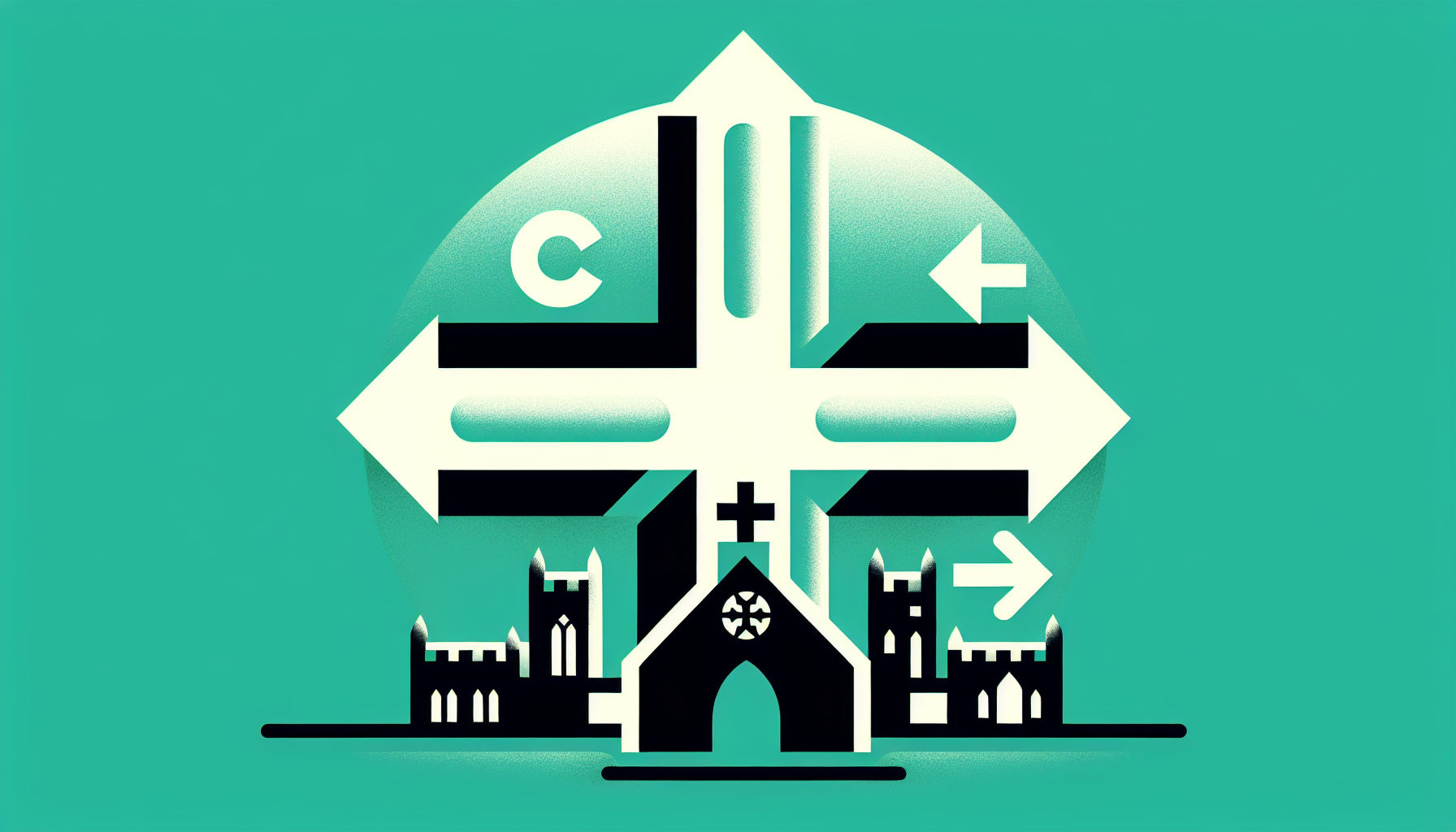The war of words between the Church of England and Reform UK over migration policy is set to intensify after a bishop who clashed with Nigel Farage said religious leaders must be “courageous” in speaking out politically. Church leaders are “not going to cease…
Why it matters
- The ongoing debate reflects broader societal disagreements regarding the UK’s migration policies.
- Religious leaders are being urged to take a stand in political discussions, highlighting the intersection of faith and public policy.
- The confrontation between church officials and political figures underscores the potential influence of religious organizations in shaping public opinion.
The tension between the Church of England and Reform UK is escalating as religious leaders are increasingly called upon to assert their positions on contentious issues such as migration policy. This latest development follows a public clash involving a bishop and prominent political figure Nigel Farage, wherein the bishop emphasized the necessity for church officials to engage courageously in political discourse.
In recent remarks, the bishop articulated a vision of leadership that transcends traditional religious boundaries, urging his fellow clerics to embrace a more active role in political discussions. He stated that church leaders have a duty to speak out on issues that deeply affect the community, particularly those relating to migration and the treatment of refugees. This call to action comes at a time when the UK is grappling with significant debates surrounding immigration, drawing attention from various sectors of society, including politics, media, and religious institutions.
The bishop expressed that remaining silent on such pressing matters is no longer an option for the church, especially when vulnerable populations are involved. He referred to the moral imperative that compels faith leaders to advocate for compassion and understanding in the face of rising anti-immigrant sentiment. This perspective is not only a reflection of religious teachings but also an appeal to the broader values of humanity and justice.
The confrontation with Farage, a well-known advocate for strict immigration controls and former leader of the UK Independence Party, exemplifies the growing divide between progressive religious views and more conservative political ideologies. The bishop's comments came in response to Farage's criticisms of the Church of England's approach to migration, which Farage claims is out of touch with the concerns of ordinary citizens.
This clash is significant as it highlights the role of faith in public life and the potential for religious institutions to influence political debates. The Church of England, with its historical roots and widespread influence, is uniquely positioned to shape discussions on social justice and humanitarian issues. By advocating for a more compassionate migration policy, the church can challenge prevailing narratives that depict immigrants as a burden rather than contributors to society.
As the dialogue between the church and political entities intensifies, it raises important questions about the responsibilities of religious leaders in modern society. Should they remain neutral, or is there a moral obligation to intervene in political matters that affect the lives of the marginalized? The bishop’s stance suggests that the latter is necessary, arguing that faith should inform public policy and encourage a more humane approach to migration.
This ongoing discourse is not only relevant to the Church of England but also resonates with various faith-based organizations across the UK and beyond. Many religious groups are increasingly vocal about their positions on social issues, indicating a potential shift towards more active involvement in political advocacy. This trend could have profound implications for future political landscapes, particularly as communities look to their leaders for guidance during times of social upheaval.
In light of these developments, it remains to be seen how political figures such as Farage will respond to the church's renewed call for action. The potential for further clashes is evident as both sides hold firm to their respective ideologies. The church's willingness to engage in these discussions may very well set a precedent for other religious institutions, encouraging them to take a stand on critical issues that affect their congregations and the broader society.
Ultimately, the ongoing conversation between the Church of England and Reform UK serves as a microcosm of the larger societal debates surrounding migration and human rights. As the church continues to advocate for compassion and understanding, it challenges both the political establishment and the public to reconsider their views on immigration and the treatment of those seeking refuge in the UK.











